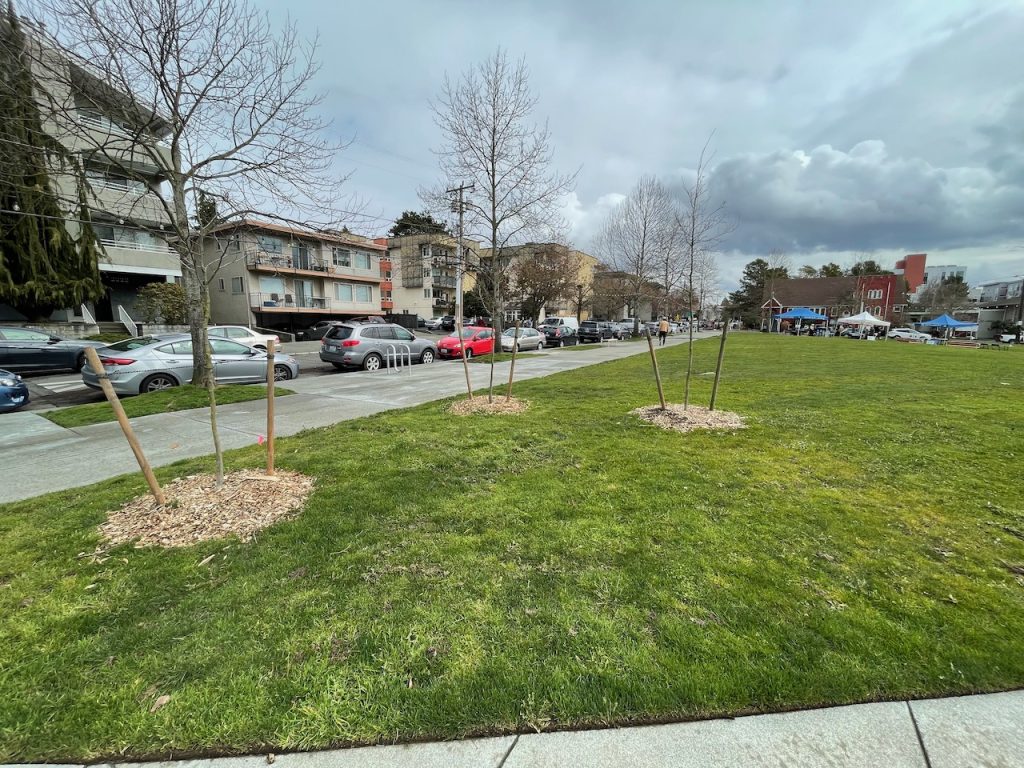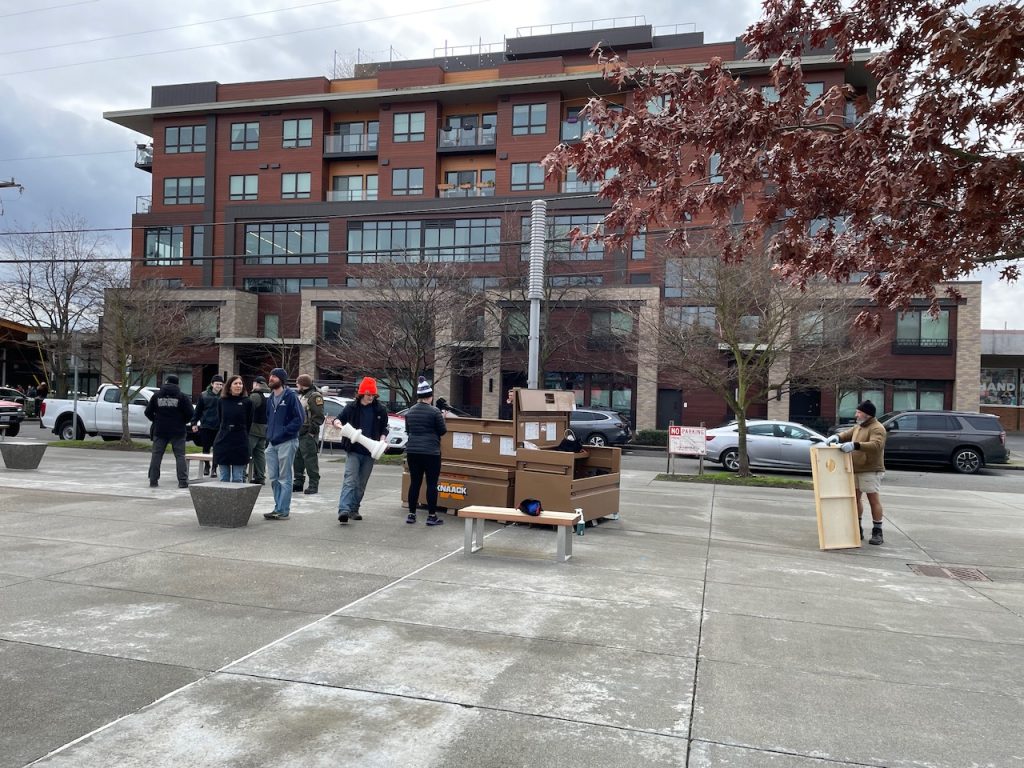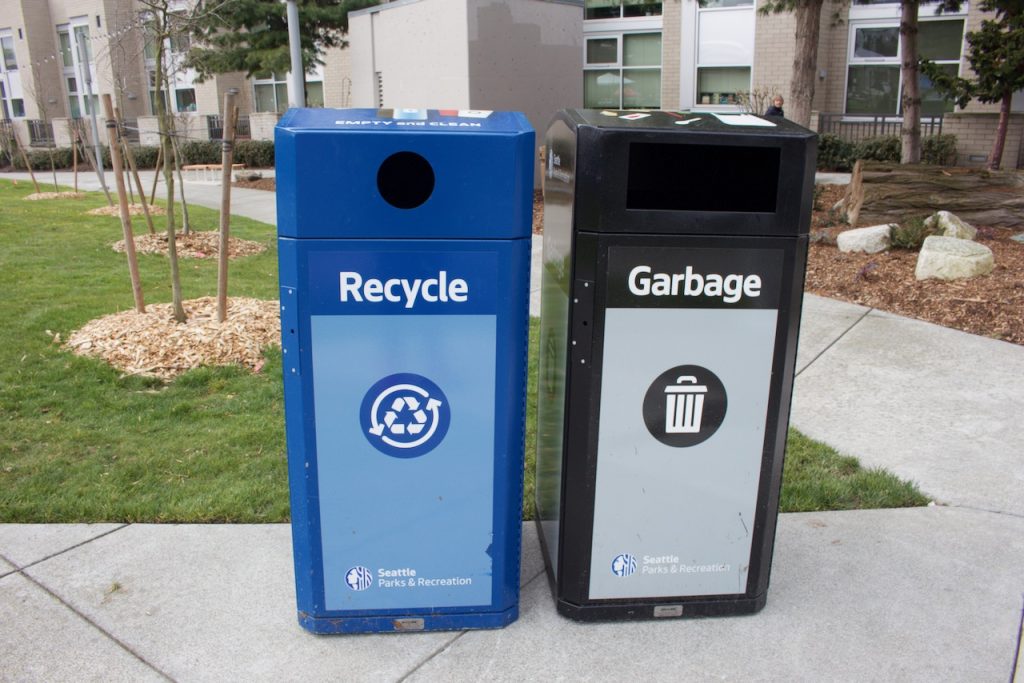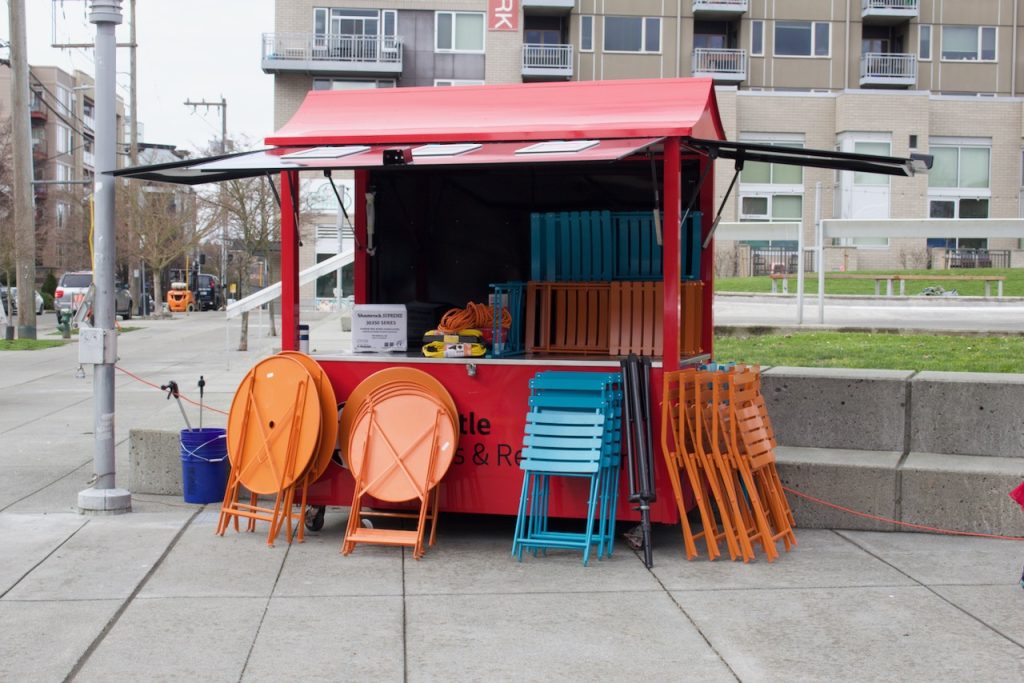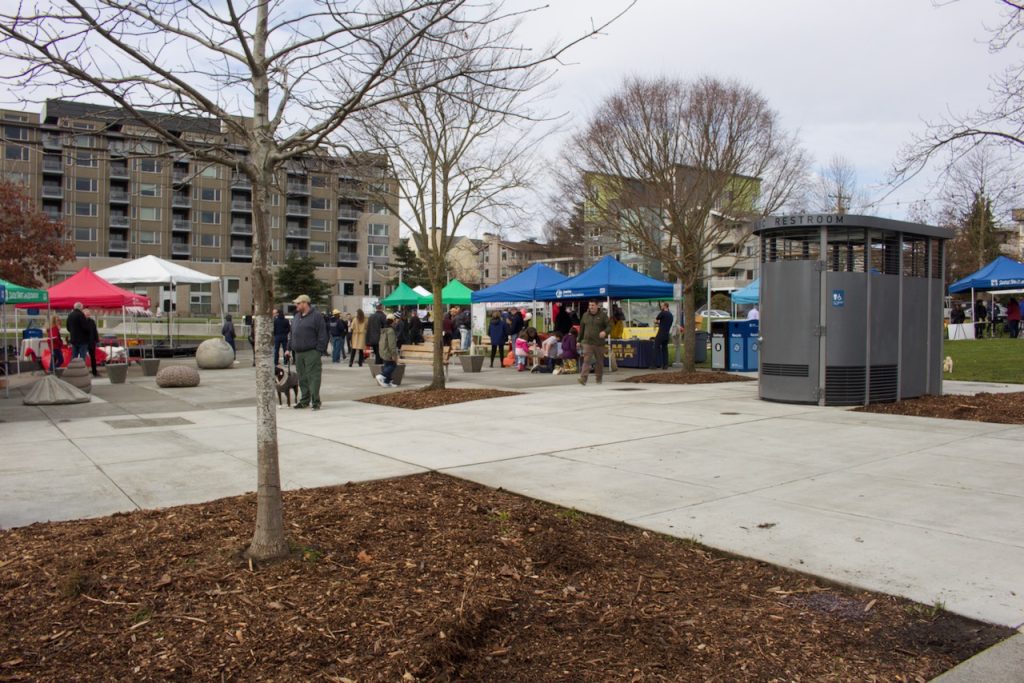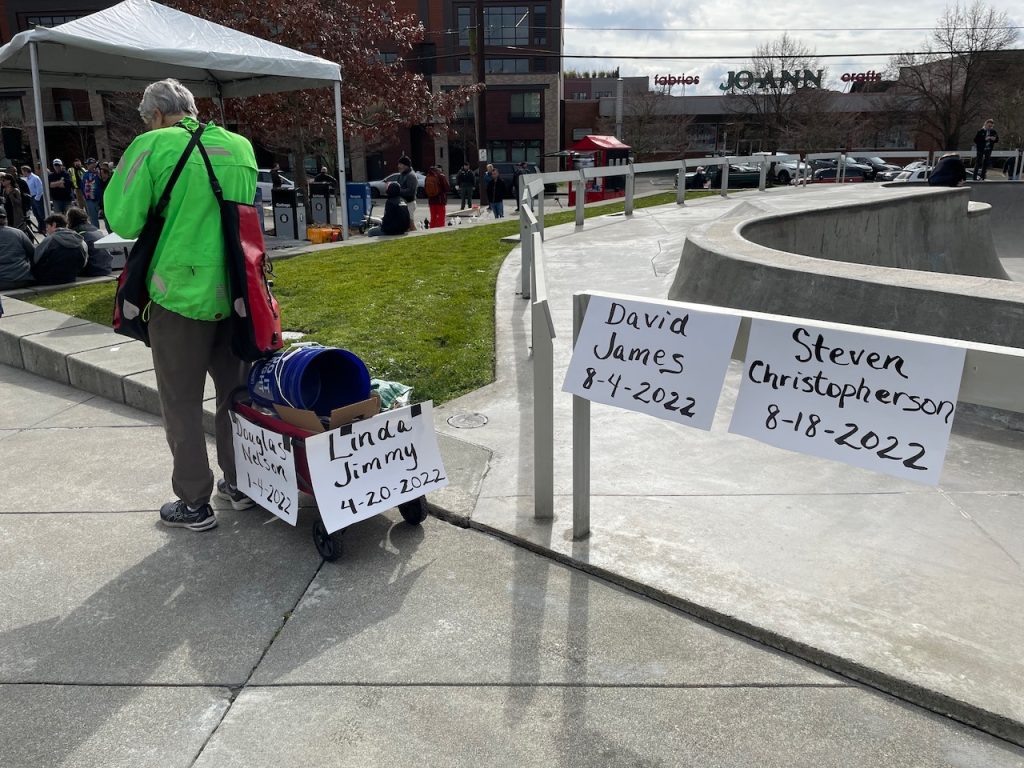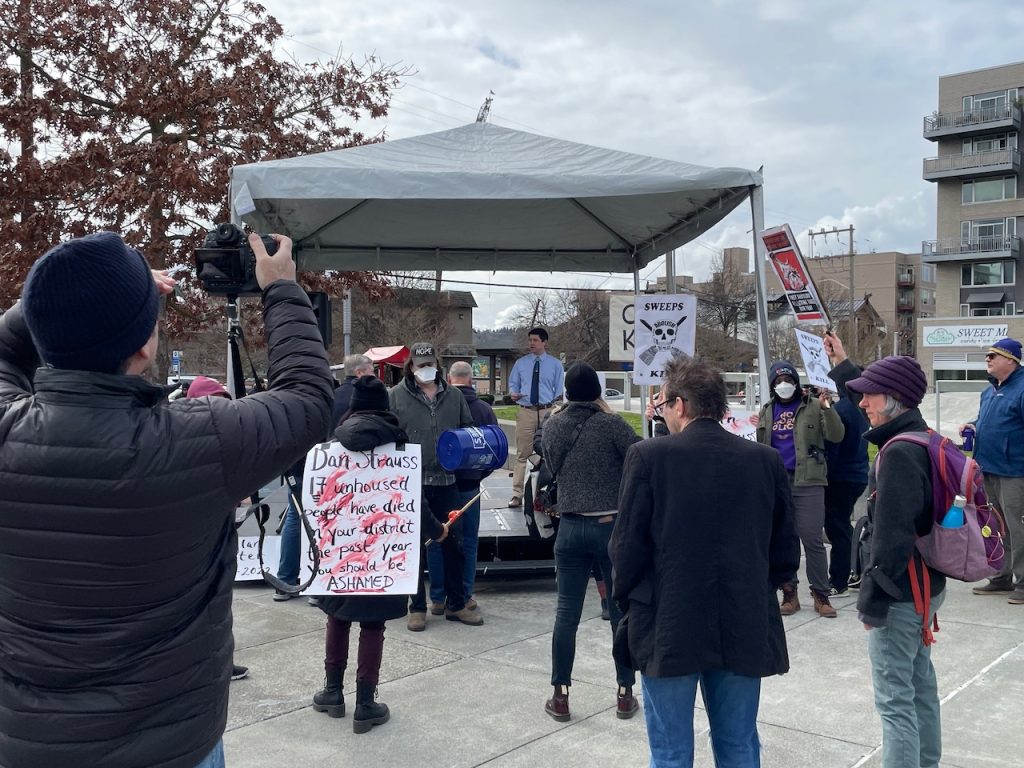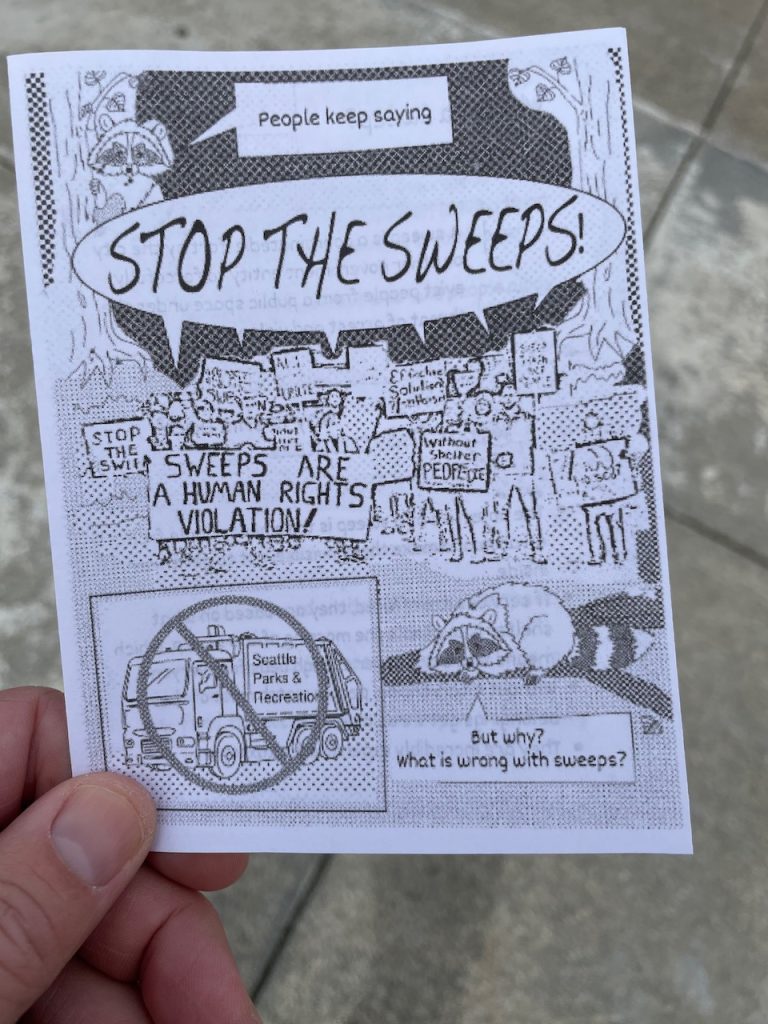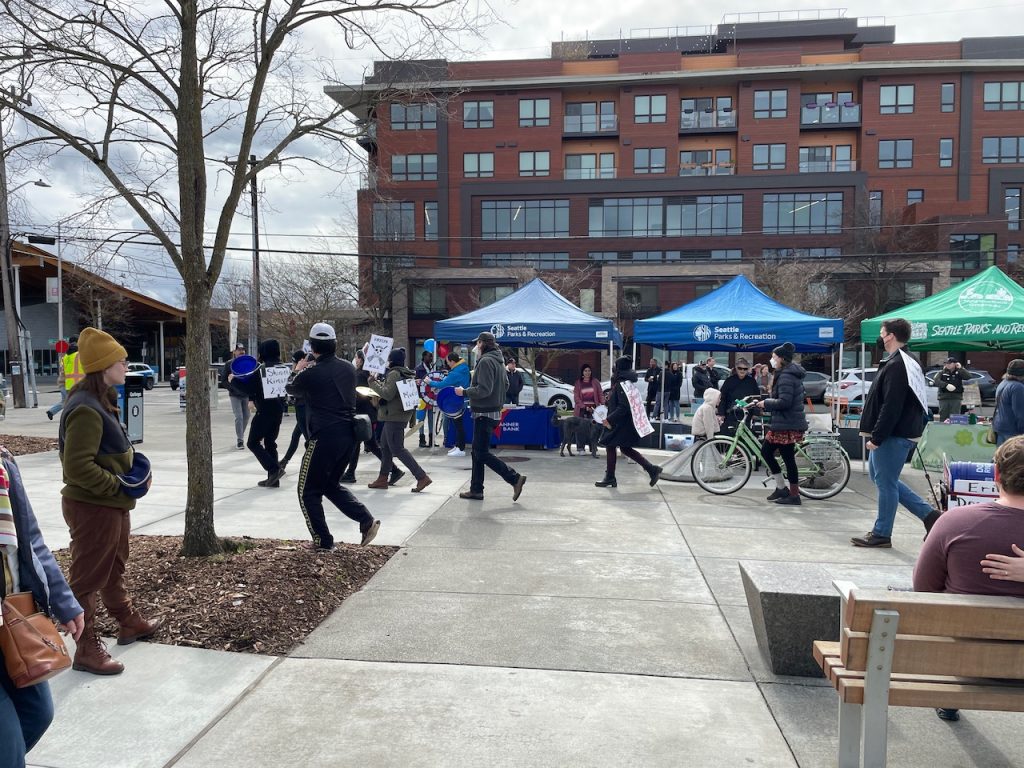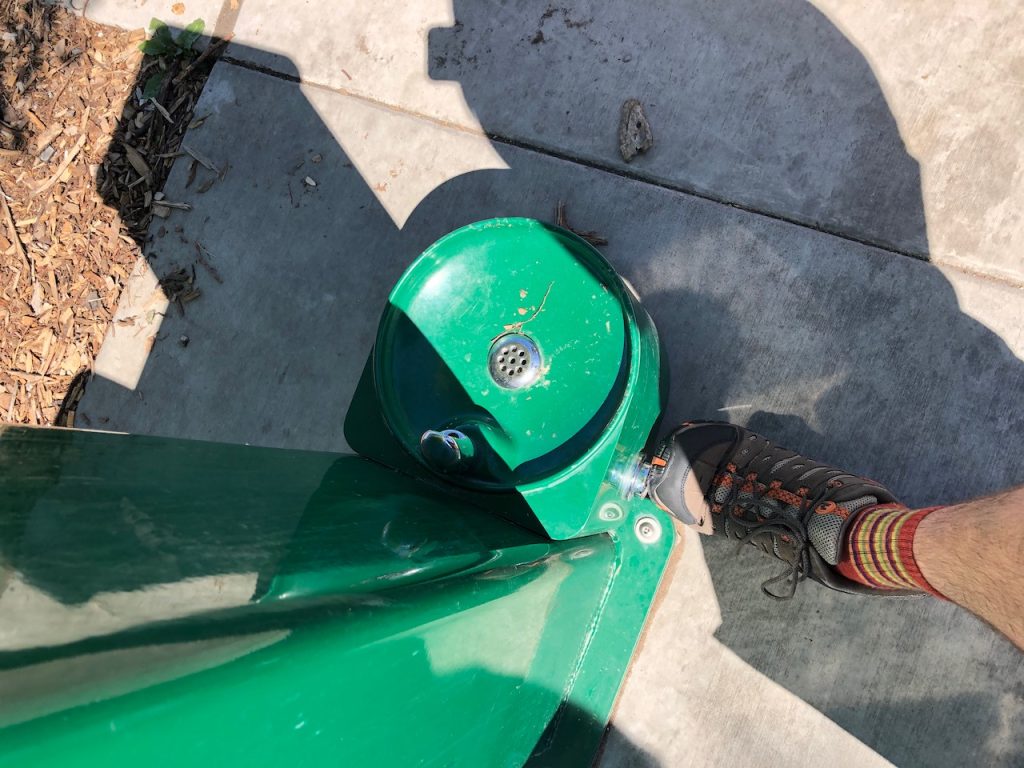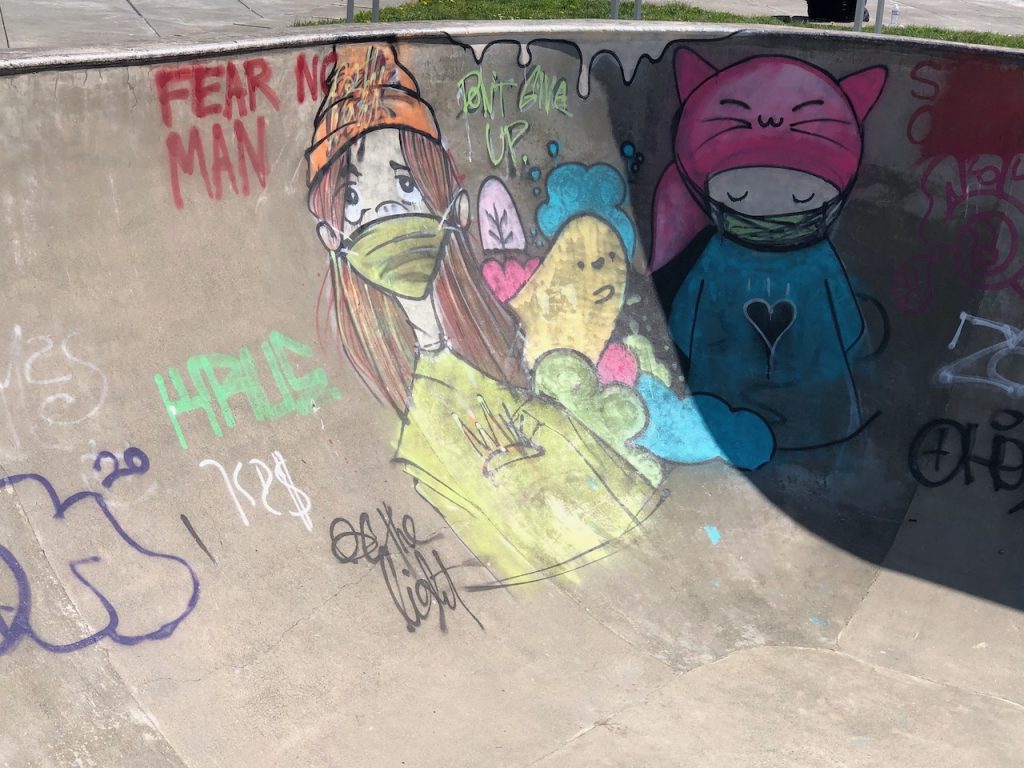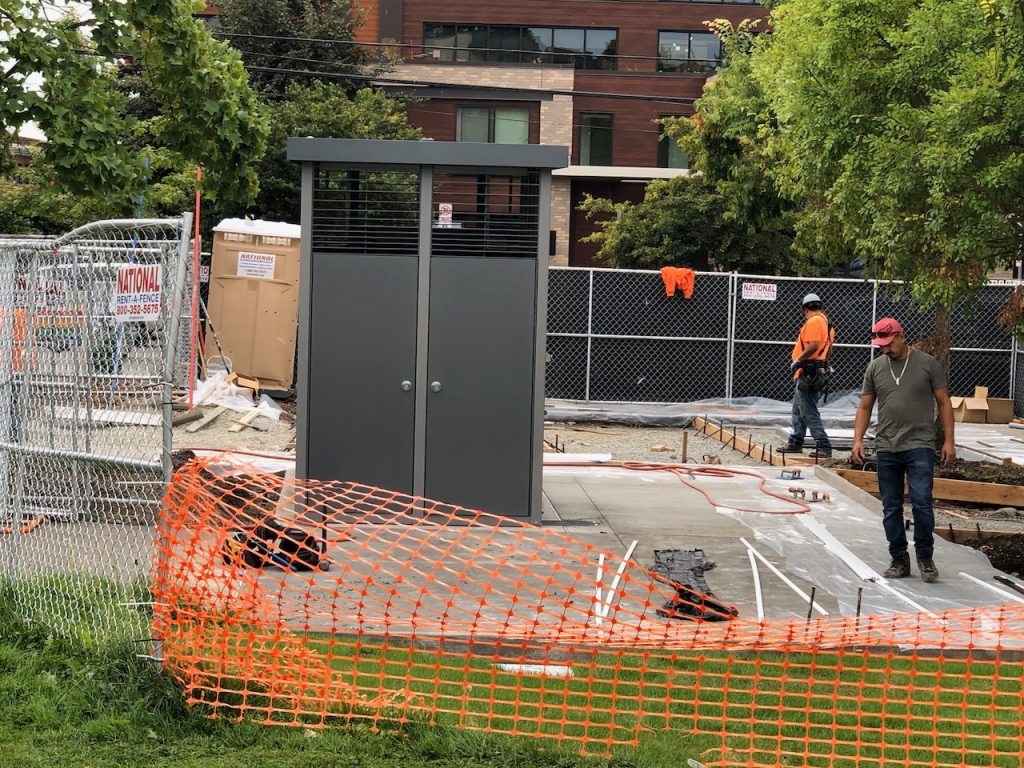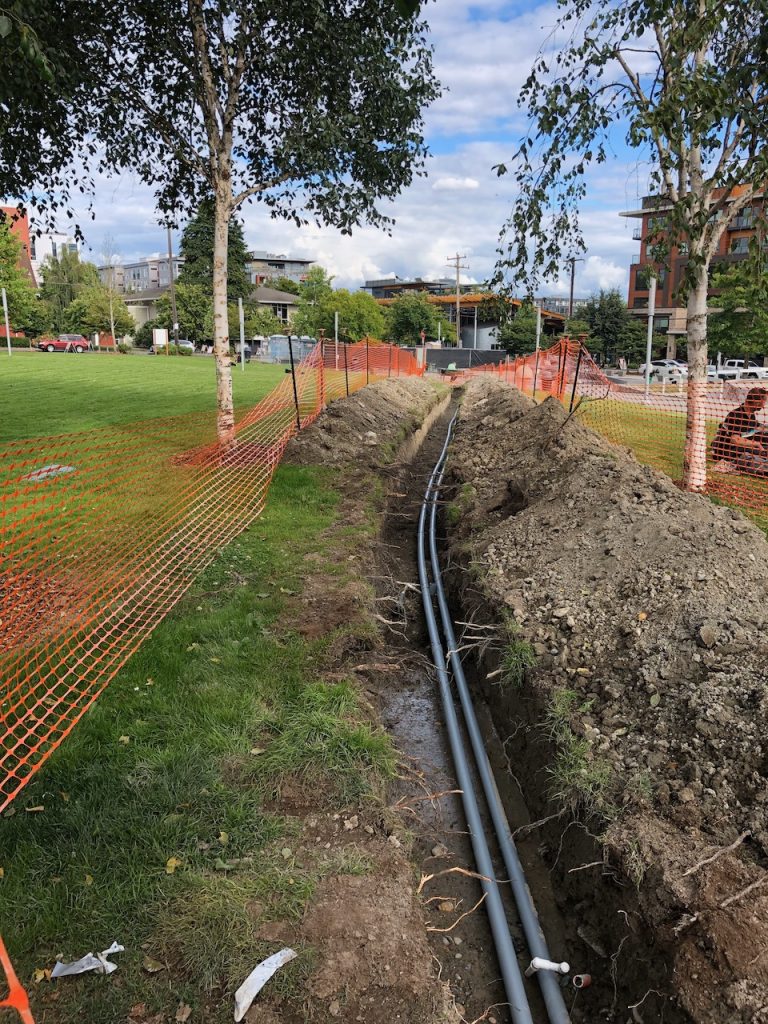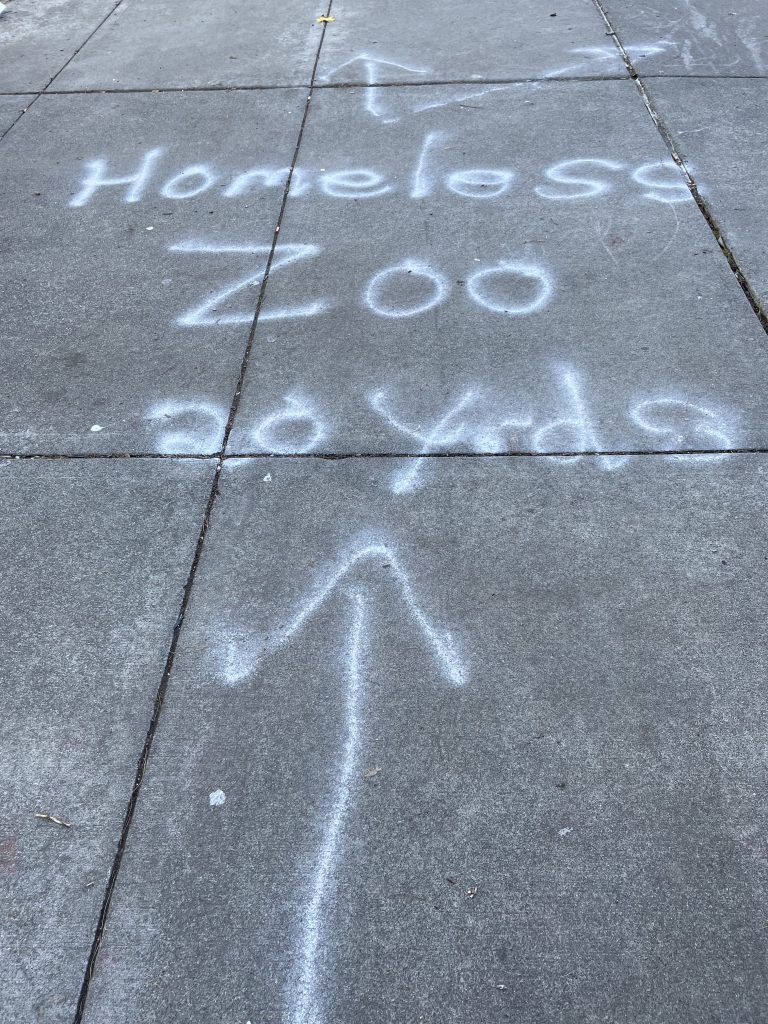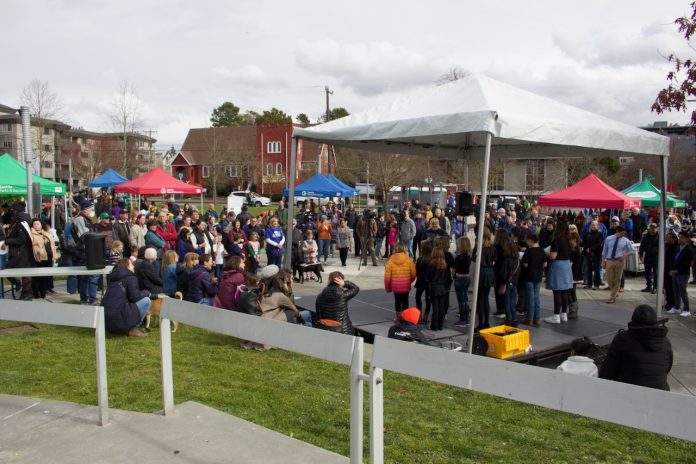
On Saturday, the fences came down and the green space at the center of Ballard was reopened. Closed in December 2021 so the city could sweep a homeless encampment that persisted through the pandemic, the benches had been replaced, the skate bowl had been scrubbed, and the park had been mowed, mulched, and was ready to show off for an excited public.
And, in a return to form, the party drew a demonstration that interrupted the organized program. After more than fifteen months closed, the visible impacts of pandemic and longstanding encampment were erased. But no number of new trash cans and shiny tables could fully erase the tension in the space.
Through the morning, businesses and Seattle Parks and Recreation staff were setting up for the party in a busy din that the Commons had not seen for over a year. Gone were the eight-foot-high chain link fences. Up went the rain canopies and stage. Nearby coffee and ice cream vendors set up for samples. People cut through from northwest to southeast in a route that they had not been able to for at least the era of fences. Likely hadn’t been able for three years as the tent encampment reached a peak and emergency calls to the park a crescendo.
The City and Councilmember Dan Strauss maintain that those who were in the park for the sweep in December 2021 were given individual attention and priority housing. But it is still an open question where the 30-some people may have gone between the park’s peak population of almost 100 and the 66 who were accommodated in tiny house villages. Strauss, along with Ballard Alliance, have been vocal cheerleaders for the park’s reopening.
As noon rolled around and the scheduled speeches were gearing up, a vocal group from Stop the Sweeps Seattle made sure that those people who were swept and those who remain unhoused in the city were not forgotten.
Even before Covid lockdowns, the Commons saw a significant unhoused population given its accessibility to services including a nearby urban rest stop and the Ballard Library. Animosity was focused on St. Luke’s Episcopal Church’s distribution of daily free meals to, well, anyone. The church saw the complaints and threats, directly and in online comments, for years and up to the time of the December 2021 sweep. The church is now planning to transform its site into a complex of apartments and new sanctuary. The plans do not yet show provisions for a new kitchen facility.
The last year wasn’t the first time fences went up around Ballard Commons. The park spent most of 2019 mostly fenced to install its Portland Loo, a public toilet that mixed aggressive architecture utility with the comfort of low bid governance. Plenty of people have pointed to the loo as its own attractive nuisance, and its installation over the summer (and turning off the kid-favorite water feature) as a punishment for parents rather than an effort to improve the park. Water was only temporarily restarted for the park when the loo was opened in fall 2019. Then it was shut off for the pandemic and kept off.
The real location winner is the library’s voting box immediately across the street from Ballard Commons. The Durkan Administration’s failure to address the issues in the park for two years, then quickly move just a short six weeks after the mayoral election, gave the air of an undeclared political donation to her favored candidate.
But that is the tension of a park in the city. It is the natural within the built. It is a personal and affecting place in full view of everyone. It is the source of peacefulness and fraught battles. Like the tension between reopening and reflecting. Slogan chanting and kid choirs. In the end, the demonstrators kept Strauss from his planned remarks, but made way for the Adams Elementary Choir to sing at their scheduled time. Grumpy feelings persisted, but there was free ice cream, Lego displays, and food trucks.
People deeply misunderstand the Tragedy of the Commons, that old myth that shared resources will be competitively misused until they are destroyed. Humans do have deep capacity to share, and it’s proven in about every society in the world. It just cannot form when one party can unilaterally cutoff access by another or all others. That’s the antithesis of a shared space.
There will be a lot of pensive pieces and handwringing over the next weeks about every small evidence that Ballard Commons is turning a corner or returning into tragedy. Some will point to the opening itself as one kind of fiasco, and others will see the demonstrations as the failure. In actuality, the park is back working correctly, protests and hurt feelings and all. The tragedy would be anyone who is ready to give up the park in an effort to take it away from their neighbor.
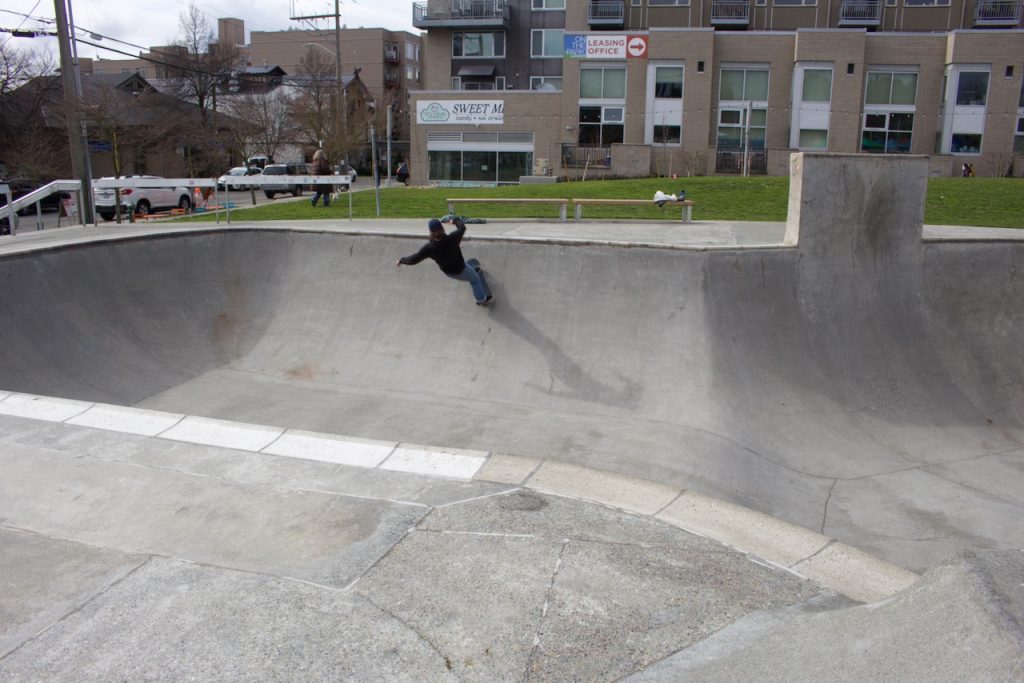
Ray Dubicki is a stay-at-home dad and parent-on-call for taking care of general school and neighborhood tasks around Ballard. This lets him see how urbanism works (or doesn’t) during the hours most people are locked in their office. He is an attorney and urbanist by training, with soup-to-nuts planning experience from code enforcement to university development to writing zoning ordinances. He enjoys using PowerPoint, but only because it’s no longer a weekly obligation.

